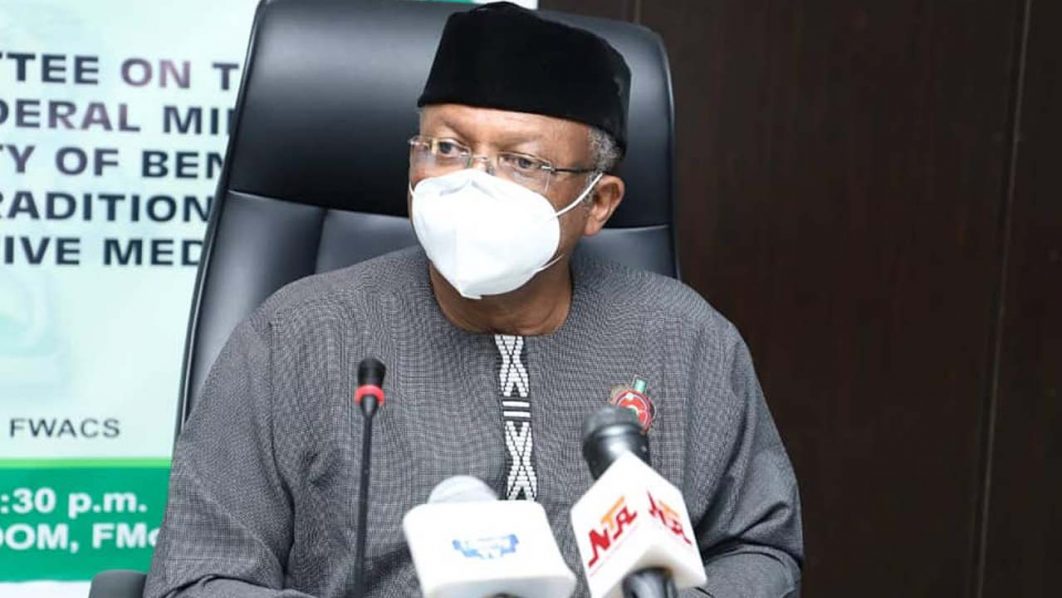The Federal government has said that it is vigorously pursuing the strengthening of the Primary Health Care system to have at least one functional PHC per ward in order to ensure that all Nigerians have access to quality health care.
Government is also reviewing its policies, strategies, plans, and operational guidelines to be more gender responsive towards improvement of the health and wellbeing of children, women, adolescents and the elderly in the country.
Minister of Health, Dr Osagie Ehanire, who disclosed this at the 2021 Multi-Stakeholder Partnership Coordination Platform for Reproductive, Maternal, Newborn, Child Adolescent and Elderly Health Plus Nutrition (RMNCAEH+N) review meeting in Abuja, observed that government is also keeping the secondary care in view with a functional General Hospital in every Local Council and at least a Tertiary Health facility at the state level.
He said: “The bridge in this referral linkage is effective and efficient transportation system and that is where the National Emergency Medical Treatment Committee fits in as provided for in the National Health Act. The National Emergency Medical System is designed to provide first aid at no cost, providing transportation to health centres at no cost and providing initial care at an urgent care centre at no cost. These further show the importance of coordination so our various efforts can lead to concrete positive outcomes.”
Ehanire noted that the group had made significant progress and scored some points on their main resolve on the platform. “A key deliverable that emanated from the core group was the development of an annual operational plan for RMNCAEH+N, which was launched in March this year. The plan is not aimed at replacing existing regular work plans, but to address specific bottleneck identified in the delivery of quality services to Women, children, adolescent and the elderly, including nutrition and health programmes.
“We started implementing the plan by looking inwards for better internal coordination and cohesion, so we created platforms for departments and programmes to interact.
Notable among these is the retreat involving programme managers from NPHCDA & the Department of Family Health, which has significantly smoothened our operations and is confronting the spirit of virtualization, which makes people work in silos. Programme-based technical working groups have also been significantly restructured and repositioned for better performance.”
Ehanire listed these to include the Child Health technical working group, Reproductive Health & Family planning working groups, Adolescent Technical working group, Nutrition Partnership, Health Promotion Forum, and the Healthy Aging partnership.”
Ehanire stated that the extra strain posed by the sudden emergence of the COVID-19 global infection added to the challenges.
According to him, “COVID-19 exposed the weakness of the health system of several emergency maternal and child health centres.”
The minister stressed the need for partnership, adding that the myriad of issues confronting the health and wellbeing of Nigerian children and women are beyond what the health sector can handle alone. “The partnership we are showcasing today has been built on past years of troubleshooting experiences, out of which we have drawn out workable strategies.”


